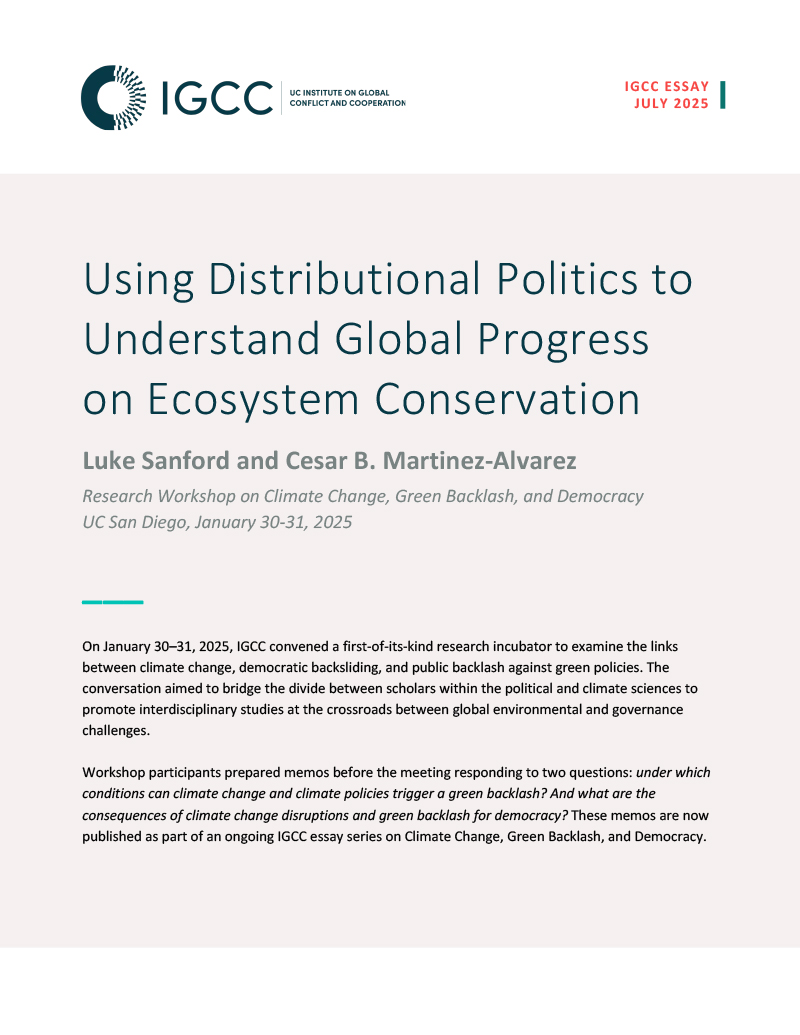Using Distributional Politics to Understand Global Progress on Ecosystem Conservation

Agriculture, forestry, and land use account for a quarter of global emissions, but climate policies in these sectors receive little attention compared to energy and transportation. In this essay, Luke Sanford, assistant professor of environmental policy and governance at the Yale School of the Environment, and Cesar B. Martinez-Alvarez, assistant professor of political science at UC Santa Barbara, examine green backlash in the ecosystem conservation sector.
DownloadDeforestation and forest degradation, driven largely by expanding agricultural production, are major contributors to global carbon emissions. Not only do forests absorb and store massive amounts of the climate-changing gas, but they also provide invaluable ecosystem services, including to the 1.5 billion people who live within a kilometer of a forest. But despite the benefits of forest ecosystems, the power of landed elites and agribusiness in the Global South works against policy efforts to address climate change by protecting forests.
In this essay, Luke Sanford, assistant professor of environmental policy and governance at the Yale School of the Environment, and Cesar B. Martinez-Alvarez, assistant professor of political science at UC Santa Barbara, build the case for a unifying theoretical framework to understand political backlash against different climate policies. Like in the energy sector, policies to reduce emissions in the land sector introduce concentrated costs on a small but powerful group of stakeholders, while the benefits are even more dispersed than in the energy sector. Sanford and Martinez-Alvarez apply key insights from the literature on energy politics to the land use sector and argue that implementing policies to preserve ecosystems and phasing out policies that incentivize land degradation can generate political backlash from targeted constituencies, while their relatively minor political salience enhances the role of interest groups in supporting or opposing these policies. The authors review existing literature on the politics of deforestation, explore conditions that may lead to green backlash in the land use sector, and examine the impacts this process could have on democratic quality, particularly in the Global South.
_______________________
On January 30–31, 2025, IGCC convened a first-of-its-kind research incubator to examine the links between climate change, democratic backsliding, and public backlash against green policies. The conversation aimed to bridge the divide between scholars within the political and climate sciences to promote interdisciplinary studies at the crossroads between global environmental and governance challenges. Workshop participants prepared memos before the meeting responding to two questions: under which conditions can climate change and climate policies trigger a green backlash? And what are the consequences of climate change disruptions and green backlash for democracy? These memos are now published as part of an ongoing IGCC essay series on Climate Change, Green Backlash, and Democracy.